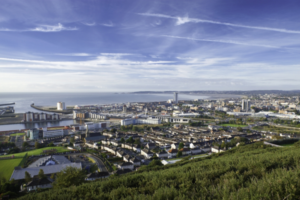 Place names in Swansea with links to the slave trade or exploitation are to be accompanied by panels or digital bar codes to give a fuller historical context, while lesser-known figures from Swansea’s past will be recognised in the future in ‘a shift away from the traditional commemoration of industrialists and landowners’.
Place names in Swansea with links to the slave trade or exploitation are to be accompanied by panels or digital bar codes to give a fuller historical context, while lesser-known figures from Swansea’s past will be recognised in the future in ‘a shift away from the traditional commemoration of industrialists and landowners’.
image: for illustration purposes only
… cross-party working group has been looking into these issues…
… deeper review of place names…
Nation Cymru writes:
The measures were recommended in a cabinet report, which cabinet enthusiastically approved at a meeting on March 18.
In addition, future decisions relating to street names will be delegated to senior council officers in consultation with cabinet members, but no changes would take place without scrutiny and wider consultation.
The acknowledgement of lesser-known characters has been evident for a while through Swansea Council’s blue plaques – the latest of which will be unveiled on March 25 in honour of Jessie Donaldson.
She campaigned for the abolition of slavery in the 19th Century, travelling to Ohio to operate a safe house which offered shelter to slaves fleeing from the plantations of the south to the relative safety of the north.
There could be consideration of a memorial to the 230 people killed during the Three Nights’ Blitz, and also to those who have died during the AIDS epidemic and the coronavirus pandemic.
A cross-party working group has been looking into these issues after Swansea councillors passed a motion last summer calling for names or public signs which had confirmed links to slavery or exploitation to be removed where possible.
The motion, which followed widespread Black Lives Matter protests, also called for a deeper review of place names and more information about Swansea’s links to the slave trade and exploitation.
Equality
Council leader Rob Stewart said he was very supportive of the working group’s recommendations, adding that equality was still something “we’re not there on”….
The cabinet report said Swansea named many of its new streets after prominent local industrialists, members of the local gentry, and Welsh and British military heroes.
“Coincidentally, some of these figures had direct or indirect involvement with the British slave trade, owned slave plantations or were connected with slave-owning families,” it said….

